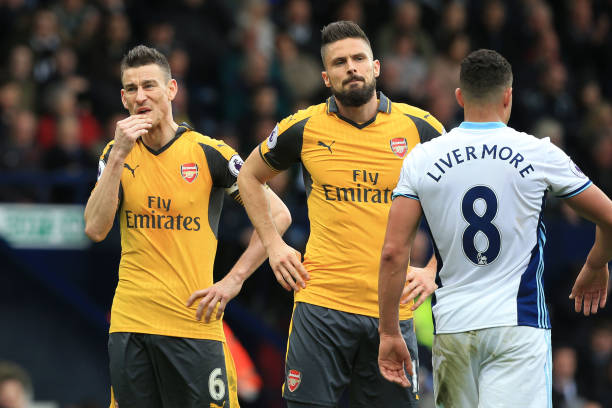Arsenal have no leaders and are too soft.
That was the line trotted out after the defeat to Watford last Saturday.
It’s a line that has become synonymous with Arsenal during a period where major success has eluded them. Pundits, managers and even some fans rely on it as a safe and easy criticism of the team whenever it doesn’t perform. Whenever Arsenal lose a game, it’s never because they didn’t perform, or because they were unlucky. It’s because they didn’t have a Tony Adams or Patrick Vieira leading the team through tough times, or because they didn’t have the bottle for the fight.
Maybe they’re right.
There is nobody in the Arsenal squad who fits the classic mould of leader, and at times you do feel the team isn’t up for a fight. However, I question how much of this is responsible for Arsenal’s lack of success over the years, and outright deny it has anything to do with that defeat.
Leadership and fight are intangible qualities. Unfortunately, there are no hard facts that can be used to prove their necessity one way or another. However, we can examine other teams around the league who are more successful than we are, and see what sort of profile their squad has.
For example, Manchester City, who are sweeping aside all comers this season so far, have no recognised leader. Alan Pardew recently tried to portray Kevin De Bruyne as one, but his on-pitch demeanour is no different to that of, say, Cesc Fabregas’ when he was Arsenal captain. Yet, few were convinced Fabregas had the profile to lead the team. If you look at Chelsea, who won the title last year, and Liverpool, who boast an excellent record in big games (the matches requiring the most leadership, according to pundits), and you’ll find that there are no obvious, stand-out leadership figures in their squads, either.
It was interesting to see the difference in narrative between Arsenal’s and Chelsea’s defeats last weekend. Nobody was calling Chelsea soft or claiming they lacked leaders despite losing to a team who hadn’t won or scored all season.
It’s also interesting how the narrative only ever works one way; how often do you see people lauding certain Arsenal players for being leaders and dragging the team through games in the big matches they do win?
Never, is the simple answer.
Ultimately, it’s a lazy crutch; a handy sound-bite that can be used to give the impression that you’re informed without having to actually analyse a game. Troy Deeney coming out and saying Arsenal have no cojones is a great story, but one far less relevant than he’d have you believe. Arsenal’s failure in that game had nothing to do with leadership and everything to do with their inability to create good chances and adequately defend under pressure.
In other words, Arsenal underperformed.
If all it took for a team to perform consistently well was for one or two players to scream and shout, then the landscape of football would look very different. As it is, the teams that win the most aren’t the ones with leaders or the bottle to fight, but the ones with the superior players executing superior strategies.
Arsenal aren’t one of those teams, hence they lose games more often. The answer doesn’t have to be more complicated than that.

